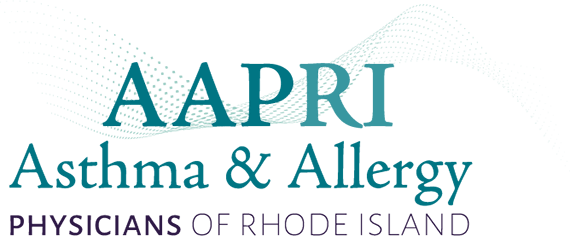In the midst of the coronavirus pandemic and with allergy season in full swing, every sneeze, cough, or tickle in the throat can cause you to wonder: Do I have COVID-19? Here at AAPRI, we get asked this question all the time. Here are some ways to tell if you’re suffering from allergies or if you should get tested for COVID-19.

Plateaus, peaks, and valleys
According to Dr. Z, seasonal allergy symptoms generally last longer than viral symptoms and have a beginning and end that is triggered by the presence of seasonal allergens. “People may have some good days or bad days if pollen counts are high, but generally it’s kind of a plateau throughout the season,” he explains. “With a virus like COVID-19, it’s likely you’re going to start feeling bad and get worse and worse before you get better—so there are these peaks and valleys—and it doesn’t last throughout the season.”
When evaluating symptoms, it’s important to look at the timeline and your past history. People with a history of seasonal allergies know their symptoms and what to expect. However, Dr. Z notes, “If you suddenly develop a symptom that’s new to you, don’t assume it’s allergies. Get a COVID test.”
Symptom check: allergies vs. COVID-19
Dr. Z notes that while there is some overlap between allergy and COVID symptoms, such as sore throat and runny nose, most people with classic allergy symptoms—sneezing and itchy, watery eyes—do not have a high fever or diarrhea and vomiting. Itchiness is not a symptom of viral illness. COVID is more likely to bring on a high fever, cough, and breathing difficulties. Here’s a quick symptom checker:
| Symptoms | Allergies | COVID-19 |
| Body aches | Rarely | √ |
| Chills | No | √ |
| Fever | No | √ |
| Headache | Sometimes | Sometimes |
| Nasal congestion | √ | Rarely |
| Runny nose | √ | Rarely |
| Sneezing | √ | Rarely |
| Itchy/watery eyes | √ | No |
| Dry cough | Sometimes | √ |
| Shortness of breath | Sometimes | √ |
| Loss of smell and taste | Mild | √ |
| Sore throat | Sometimes | Sometimes |
| Nausea, vomiting, diarrhea | No | Sometimes |
The bottom line: If you’re worried, get tested
We know that COVID-19 manifests differently in different people and some symptoms can overlap with seasonal allergies and other viruses such as the common cold or flu. “If there’s any question you might have COVID or you’re worried about it, get tested—it’s safer for you and everyone else,” says Dr. Z.
For any medical issue, contact your physician. Visit the Rhode Island Department of Health for information about COVID-19 testing and more. Be sure to follow guidelines from the Centers for Disease Control and Prevention about how to protect yourself and others.

